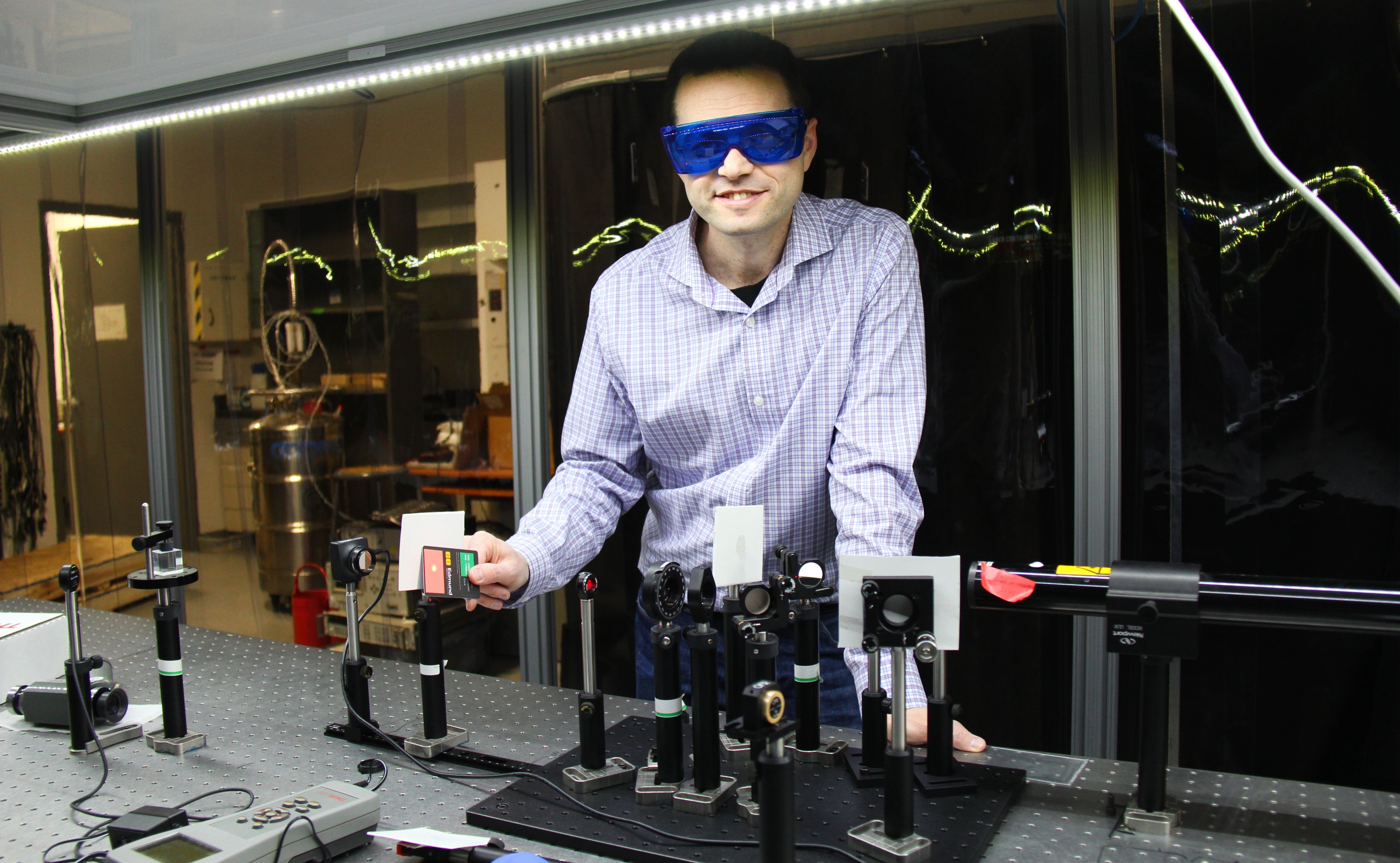
Electrical engineering professor Gil Porat puts his own knowledge and experience into his teaching-even if it means walking into a wall. Porat won the 2019 Faculty of Engineering Award for Excellence in Undergraduate Teaching, for the first class he ever taught. It's a promising start.
(Edmonton) Let's be honest about the fact that some subjects can be as challenging to teach as they are to learn. If you're in an introductory course that the professor describes as "math intense," for example, you're looking for clarity.
And that's what electrical engineering professor Gil Porat delivered when he walked smack into a wall to help explain complex concepts like quantum tunneling and autonomous systems in physics.
"I walked into the wall and they all laughed," Porat said.
"And I said, 'Well, I didn't go through the wall, but if I were a fundamental particle, according to quantum mechanics, even if I'm facing a barrier I don't have enough energy to go through, I can still disappear and pop up on its other side. That's called autonomy.
"We had some laughs. I hope they appreciated the example," Porat said of his improvised teaching technique.
"One of the things I like about my work is that I get to be creative. I want to give my students more than what is in the textbook."
Teaching the class in continuous time signals and systems, Porat explains to his students that the material they are being taught is used in all areas of engineering and science, reminding his students that "you'll need it everywhere-it's a tool that is widely used by almost everybody."
Teaching his students the science of physics and quantum mechanics, Porat would heavily interact with his students to ensure they have a "positive attitude to learning"
"I like the people and students here, it's a pleasure to interact with them, they have lots of questions and good insights," says Porat.
Teaching his very first course at the faculty, Porat characterizes his teaching approach as an "enthusiasm and engagement-based" model of teaching.
"As much as I can, I try to engage them, I try to encourage them and to ask questions. I always keep it positive and always support them, especially when I'm teaching an introductory course."
Porat has won the 2019 Faculty of Engineering Award for Excellence in Undergraduate Teaching. The award is intended to recognized outstanding achievements in teaching and to enhance teaching and the quality of instruction at the university.
"To be honest I thought it was a mistake," Porat said of winning the prize after teaching for the first time.
Porat also shares credit with his engineering colleagues and the university.
"My colleagues in the Department of Electrical and Computer Engineering are really supportive and they shared their (teaching) notes with me and gave me advice on what the teaching environment is like," he said.
"And we also have great workshops here about teaching and how to engage students."